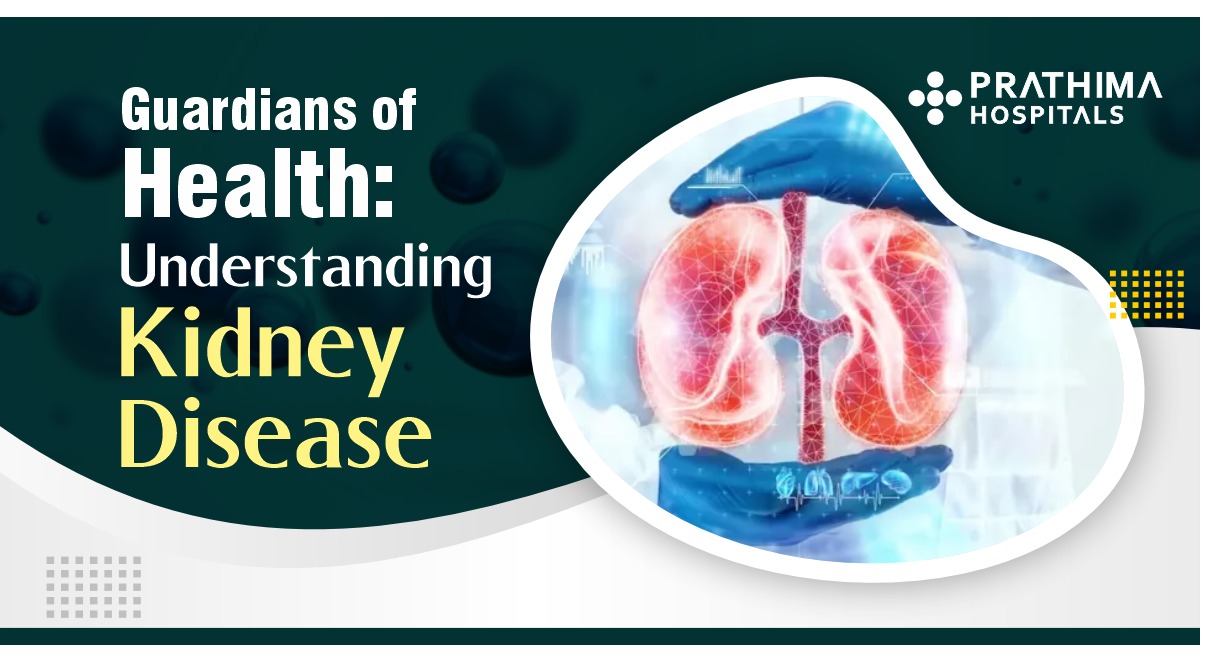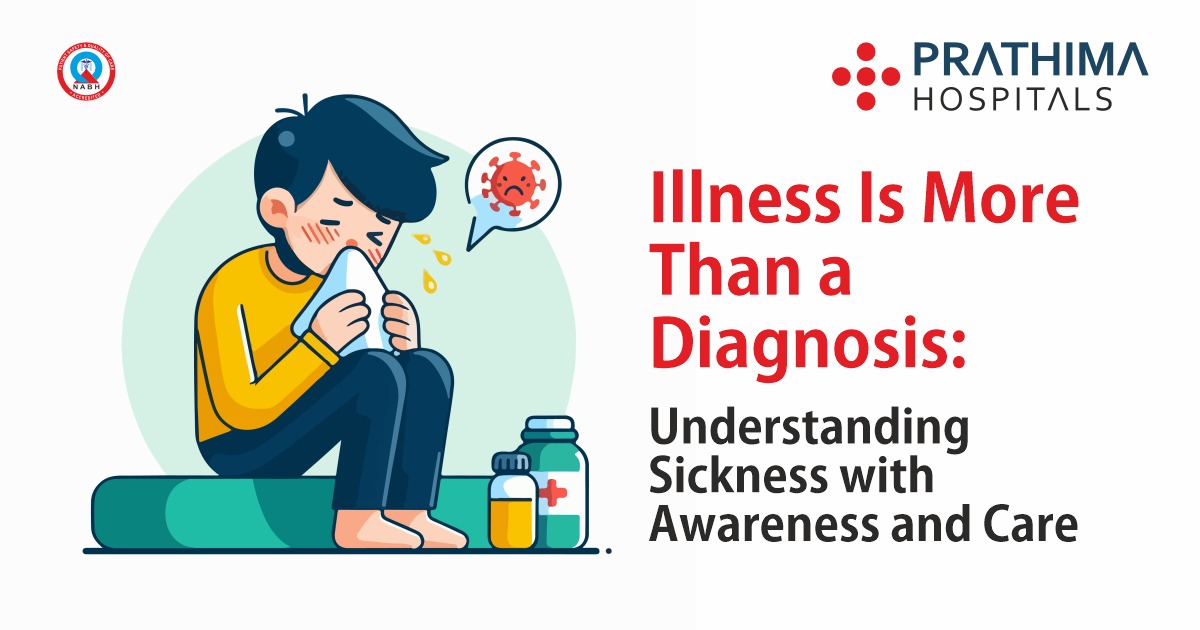Understanding Kidney Disease: A Comprehensive Exploration

Kidney Disease | Risk Factors for Kidney Disease
Kidney disease, a silent epidemic, silently creeps into the lives of millions worldwide, causing havoc to health and well-being. In the United States alone, its prevalence is staggering, with approximately one-third of adults facing the looming risk of developing this condition. While it often remains undetectable until it reaches an advanced stage, the consequences can be dire, necessitating invasive treatments like dialysis or transplantation. However, armed with knowledge and proactive measures, individuals can safeguard their kidney health and mitigate the impact of this insidious disease as said by Best Nephrologist in Hyderabad.
In this comprehensive exploration, we delve deeper into the intricate facets of kidney disease, from its fundamental mechanisms to practical steps for prevention and management. By understanding the complexities of kidney function, assessing individual risk factors, recognizing subtle symptoms, undergoing essential diagnostic tests, embracing healthy lifestyle habits, and accessing ongoing education and support, individuals can empower themselves to take charge of their kidney health and improve their overall well-being.
Understanding Kidney Function
To comprehend the significance of kidney health, one must grasp the multifaceted roles these vital organs play in maintaining physiological equilibrium. The kidneys serve as the body’s primary filtration system, responsible for removing waste products, excess fluids, and toxins from the bloodstream through the production of urine. Additionally, they regulate electrolyte balance, control blood pressure, stimulate red blood cell production, and activate vitamin D to support bone health.
The intricate structure of the kidneys consists of millions of tiny filtering units called nephrons, each composed of a glomerulus and a tubule. The glomerulus acts as a sieve, allowing small molecules like water, glucose, and waste products to pass through while retaining larger molecules like proteins and blood cells. The filtered fluid then travels through the tubules, where essential substances are reabsorbed into the bloodstream, and excess waste products are excreted as urine.
Assessing Individual Risk Factors
While kidney disease can affect anyone, certain risk factors predispose individuals to a higher likelihood of developing this condition. Diabetes and hypertension (high blood pressure) rank among the leading causes of kidney disease, collectively accounting for a significant portion of cases. Other risk factors include obesity, cardiovascular disease, a family history of kidney disorders, age, ethnicity (African Americans, Hispanics, and Native Americans are at higher risk), smoking, and certain medications or toxins.
Individuals with preexisting health conditions such as diabetes or hypertension should be particularly vigilant about monitoring their kidney function regularly. Additionally, those with a family history of kidney disease or other predisposing factors should undergo periodic screenings to assess their risk and detect any early signs of kidney dysfunction.
Recognizing Subtle Symptoms
As per Best Nephrologist in Kukatpally, of the challenges in diagnosing kidney disease lies in its asymptomatic nature, especially in the early stages. However, as the condition progresses, certain signs and symptoms may begin to manifest, signaling underlying kidney dysfunction. These symptoms can vary depending on the specific type and severity of kidney disease but may include:
Fatigue and weakness: Due to anemia resulting from reduced production of erythropoietin, a hormone produced by the kidneys that stimulates red blood cell production.
Swelling (edema): Accumulation of fluid in the tissues, often noticeable in the hands, feet, ankles, or around the eyes.
Changes in urinary habits: Increased frequency of urination, especially at night (nocturia), foamy or frothy urine, blood in the urine (hematuria), or difficulty urinating.
Persistent itching: Caused by the buildup of waste products in the bloodstream, leading to skin irritation.
Nausea and vomiting: Resulting from the accumulation of toxins in the body due to impaired kidney function.
It is essential to recognize these subtle symptoms and seek medical attention promptly to prevent further progression of kidney disease and associated complications.
Undergoing Essential Diagnostic Tests
Early detection is critical in managing kidney disease effectively. For individuals at risk or exhibiting symptoms, undergoing specific diagnostic tests is essential for accurate diagnosis and timely intervention. These tests may include:
Blood tests: to measure levels of creatinine, a waste product produced by muscle metabolism that serves as a marker of kidney function, and estimate glomerular filtration rate (GFR), which reflects the kidneys’ ability to filter waste from the bloodstream.
Urine tests: to assess protein levels (proteinuria) and detect the presence of blood or other abnormalities in the urine.
Imaging studies: such as ultrasound, CT scan, or MRI, to visualize the structure and size of the kidneys and detect any abnormalities or obstructions.
Kidney biopsy: in certain cases where the underlying cause of kidney disease is unclear or to assess the extent of kidney damage, a small sample of kidney tissue may be obtained for examination under a microscope.
These diagnostic tests provide valuable insights into the underlying cause and severity of kidney disease, guiding treatment decisions and management strategies.
Embracing Healthy Lifestyle Habits
While certain risk factors for kidney disease, such as genetics or preexisting health conditions, may be beyond one’s control, adopting a healthy lifestyle can significantly reduce the risk and slow the progression of kidney disease. Key lifestyle modifications include:
Maintaining a healthy diet: Opt for a balanced diet rich in fruits, vegetables, whole grains, and lean proteins, while limiting processed foods, saturated fats, and excessive salt intake.
Managing blood pressure: Monitor blood pressure regularly and work with healthcare professionals to keep it within the recommended range through lifestyle changes and medication if necessary.
Controlling blood sugar: For individuals with diabetes, carefully manage blood sugar levels through diet, exercise, medication, and regular monitoring to prevent kidney damage.
Staying hydrated: Drink an adequate amount of water each day to help the kidneys flush out toxins and waste products effectively.
Avoiding tobacco and excessive alcohol consumption: Smoking and heavy alcohol intake can impair kidney function and exacerbate existing kidney disease.
Exercising regularly: Engage in moderate-intensity physical activity for at least 30 minutes most days of the week to improve cardiovascular health and overall well-being.
Maintaining a healthy weight: Aim for a body mass index (BMI) within the normal range and avoid excessive weight gain or obesity, which can strain the kidneys and increase the risk of kidney disease.
By incorporating these healthy lifestyle habits into daily routines, individuals can protect their kidney health and reduce the risk of developing kidney disease or experiencing complications associated with existing kidney dysfunction.
Accessing Ongoing Education and Support
Education and support are crucial components of effective kidney disease management. By staying informed about the latest advances in kidney health, individuals can make informed decisions about their care and treatment options. Additionally, connecting with support groups, online communities, and healthcare professionals specializing in kidney disease can provide valuable resources, encouragement, and emotional support throughout the journey.
Participating in educational events, such as kidney health screenings, awareness campaigns, and community outreach programs, can also raise awareness about kidney disease and promote early detection and intervention. Organizations like the National Kidney Foundation and the American Kidney Fund offer a wealth of information, resources, and support services for individuals affected by kidney disease and their families.
Kidney disease represents a significant public health challenge, affecting millions of individuals worldwide and posing substantial risks to health and well-being. However, by understanding the fundamental mechanisms of kidney function, assessing individual risk factors, recognizing subtle symptoms, undergoing essential diagnostic tests, embracing healthy lifestyle habits, and accessing ongoing education and support, individuals can take proactive steps to protect their kidney health and improve their overall quality of life. Through a combination of awareness, education, preventive measures, and early intervention as said by Best Nephrologist in Kachiguda.
.
.
.
.
.
For More Details:
📞:: 733 733 6600 | 040 4345 4345
🌐:: https://prathimahospitals.com/book-appointment/





